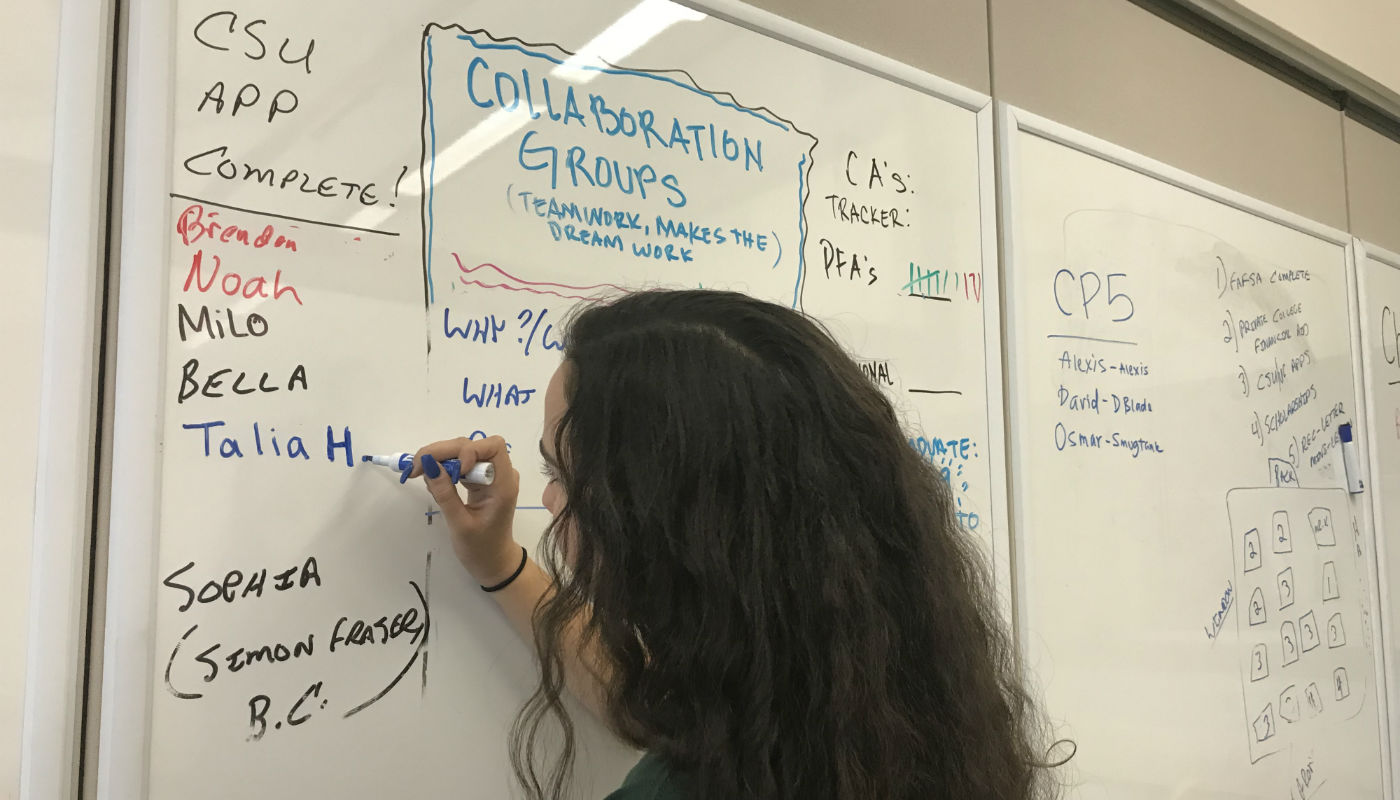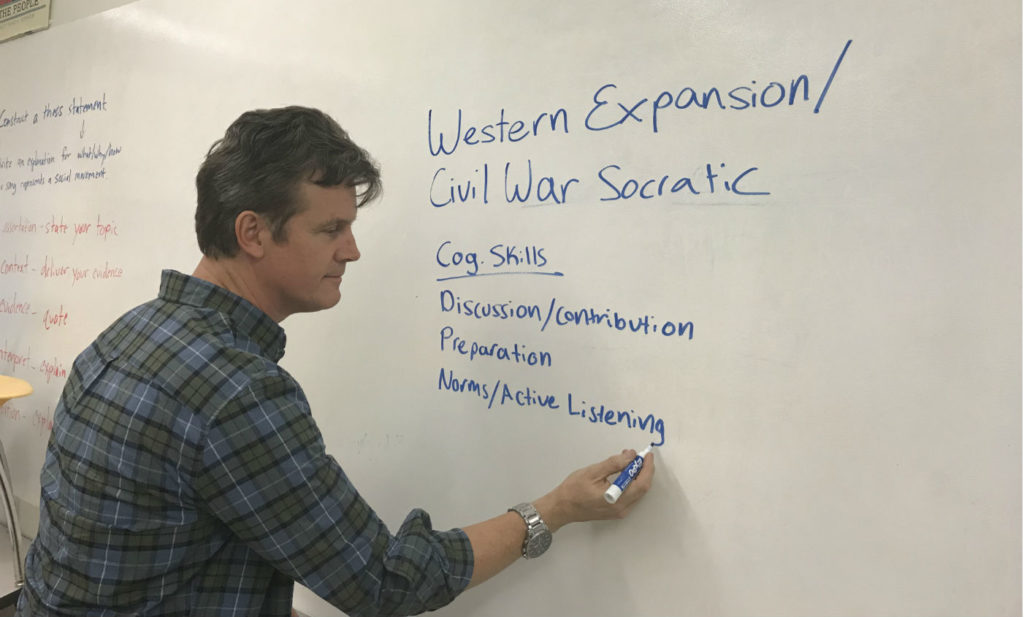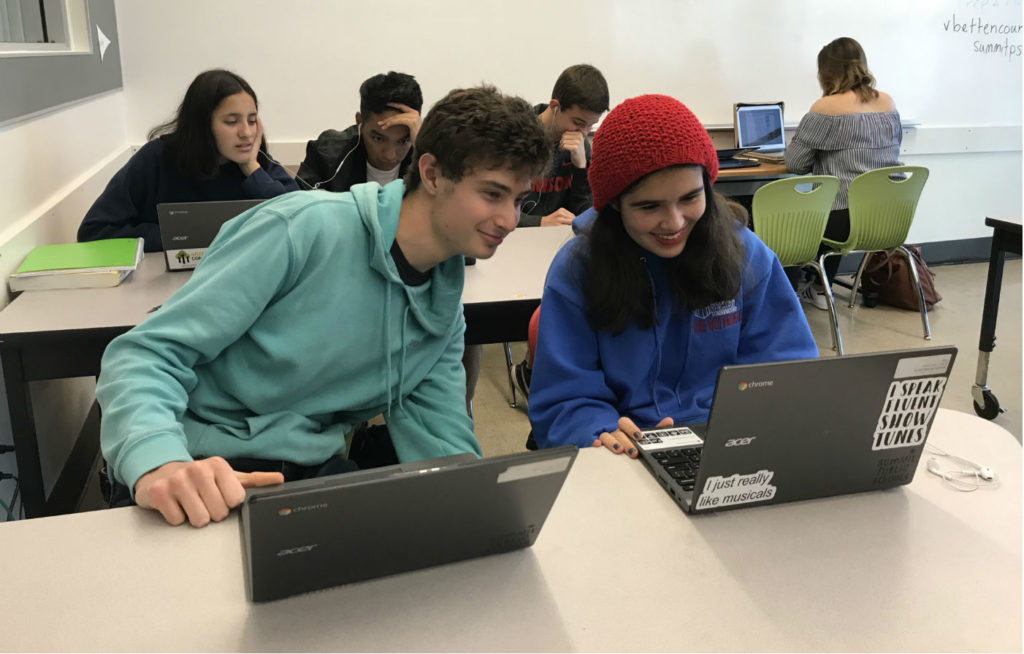
My mentor gave me a reassuring nod as I took a deep breath and clicked submit: “Congratulations on your application submission!” the screen read.
That was it. On October 13, 2017, I finally submitted all five of my California State University applications, and I could not have been more relieved. Of course, I still had three other applications to submit, but in that moment I felt like I was on top of the world. I had toured the colleges, done the research, fought for the grades, and to see all of my hard work finally be put to action felt incredible.
Now, it’s time to perfect my applications to the University of California schools, also known as the UCs. Along with many of my peers, I chose to apply to the UC schools because of their reasonable price range for California residents combined with the high quality of education that they provide. After much consideration, I decided on applying to UC Santa Cruz, UC Santa Barbara, and UC Los Angeles.
The UCs require four “personal insight” questions to help admissions officers get to know the applicant better. The questions that I ended up choosing are:
- Describe an example of your leadership experience in which you have positively influenced others, helped resolve disputes, or contributed to group efforts over time.
- What would you say is your greatest talent or skill? How have you developed and demonstrated that talent over time?
- Describe the most significant challenge you have faced and the steps you have taken to overcome this challenge. How has this challenge affected your academic achievement?
- Beyond what has already been shared in your application, what do you believe makes you stand out as a strong candidate for admissions to the University of California?
While these answers should reveal what kind of person the applicant is, admissions officers are also looking for what kind of writer they are. A key tool that has helped me develop my writing strength is Summit’s Cognitive Skill Rubric.
The Importance of Cognitive Skills
Cognitive Skills are essential and transferable lifelong skills such as preparation, word choice, integration of evidence and oral presentation. At Summit, Cognitive Skills make up 70% of our grade and are assessed through projects.
These 36 skills are graded on a 1-8 scale. Each year, we are expected to increase our Cognitive Skill score by .5 of a point in order to get a 100%. For example, during freshman year, a 5.5 on a given Cognitive Skill equates to an A. However as a senior, in order to get an A you must get a 7 on the skill. This kind of scoring encourages a growth mindset because students are encouraged to progressively improve at these skills instead of staying at the same level.

As a fourth year student at Summit Prep — a Summit Public Schools high school based in Redwood City, California — I pretty much know the Cognitive Skills Rubric by memory. During project time (a time provided by teachers to let the students be self-directed and work at their own pace on schoolwork, which makes up the majority of the school day), I am constantly referring back to it, but recently these skills have been coming in handy for college applications.
After multiple check-ins with my mentor, Mr. Kelly, and his student teacher, Mr. Lola, I have a clear and focused plan for answering my personal insight questions with a combination of storytelling and strong writing. They helped me brainstorm ways to dynamically convey who I am, along with who I would like to become. I currently have three out of the four personal insight question answers written, but I still have a few more steps I need to take before submission.
The 3 Cognitive Skills I Used While Writing My College Essays
Before submission of my UC application in November, I will need to double check Summit’s Cognitive Skills rubric to make sure that my essays are the best that they can be. The most important Cognitive Skills that I’ve used in writing my applications are Organization, Conventions and Development:
- Organization: Using text structure and transitions to communicate with clarity and coherence.
- Conventions: Using discipline-appropriate conventions to support clear expression of ideas and information.
- Development: Explaining the connection between events, ideas or concepts in a text using specific details.
Beyond these three skills, there are aspects of other Cognitive Skills that have also been helpful. While writing my essays, it’s not uncommon for me to refer back to these skills on the Summit Learning Platform. The rubric helps me focus my writing and is a great resource to use when I feel like I am stuck or feel as if I can’t add anything else to my paper. For example, I always find the “Asking Questions” skill helpful when I feel as if a research question is not focused enough. The Cognitive Skills are consistently a good reminder of what makes a project strong and concise.
The Next Step: Peer Feedback
One of the ways that Summit’s approach to teaching helps develop students’ Habits of Success — mindsets and behaviors that support well-being — is through peer feedback. This action of reaching out to teachers and peers has become so normalized that I feel as if my papers are incomplete without getting peer feedback. Before I submit my college essays, I will ensure that I have my friends read them, along with a few teachers, too.
Summit stresses the importance of peer feedback so much that it’s actually embedded into the curriculum. While someone finishes a project step (also known as a checkpoint), there is a button in the bottom right corner where we are able to submit the document for feedback from our teacher. Then, our teacher can mark our paper red, orange, or green, depending on whether it meets all the Cognitive Skills requirements to pass.

Acquiring Skills for Life
I’m grateful that I have such a reliable resource that I can always access to help me during the often stressful application process. In the future, I see myself referring back to the Cognitive Skill rubric when writing papers and giving presentations.
“I believe that the skills that I am practicing now will not only help me now in school and with applications, but also in college and beyond.”
After double checking Summit’s rubric to make sure my essays are up to par with the Cognitive Skills and getting peer feedback, I’ll be ready to submit my University of California applications. In the meantime, I will continue to be working on my senior year projects. There is one project in particular that I have been really excited about called “Deconstructing Politics in America” and it’s for my AP Government class. The purpose of the project is to get a better understanding of the political beliefs one holds, and what events have shaped their opinion on a given issue. I am very interested in politics, so this project is fun and interesting to me. This project, and a few others, will be the main thing that keeps me occupied while the college acceptance waiting game begins.
This post is the second in a series about Talia’s journey to college acceptance.

